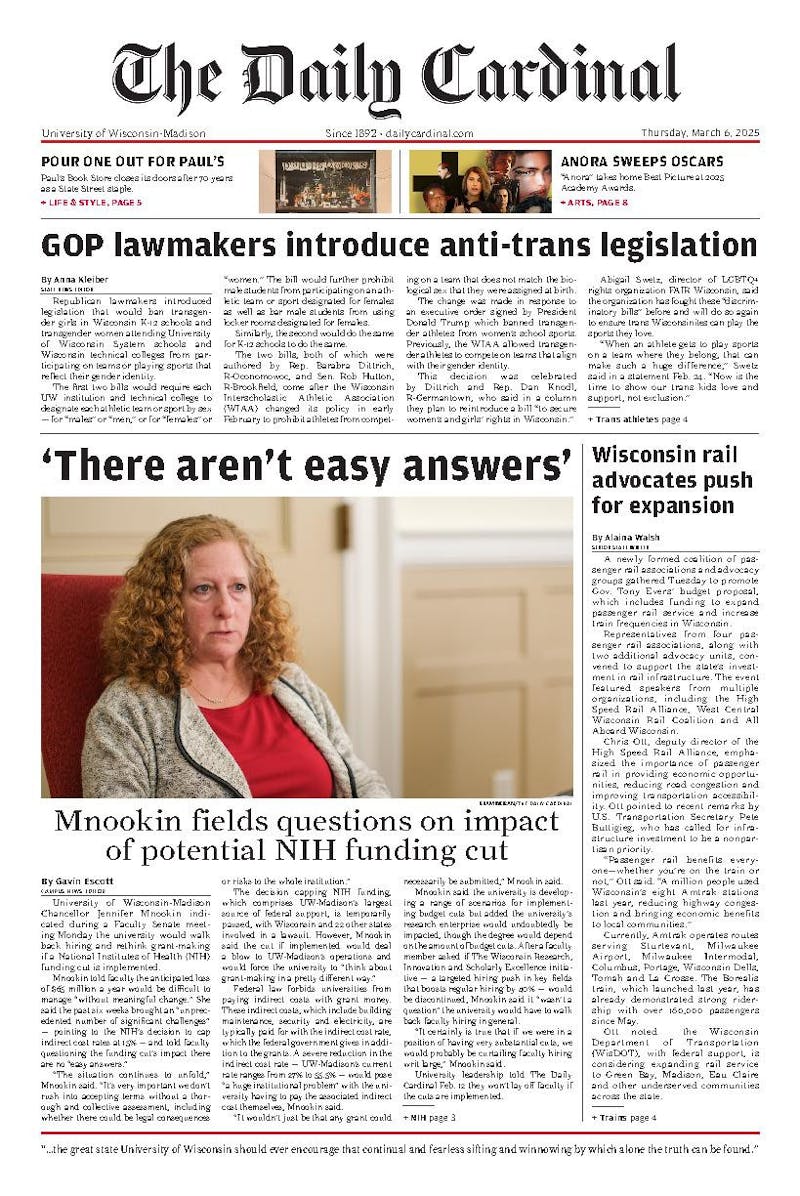This is it.
It is Tuesday, my column is due in three hours, and I have nothing. Ideas have come and gone (Sex in literature? Too risqué. Non-profit publishing? Seems like a lot of research) and all I have before me are a few pointless sentences in the default Cambria font of Microsoft Word 2008.
Writer's block is a condition faced by authors of all levels at all times in history. Whether it's a Political Science student attempting to write her essay on Russian politics at four in the morning, or an aging novelist with 12 books under his belt, it's a well-documented phenomenon that happens to even the most talented of wordsmiths.
Perhaps my greatest realization of this came from learning that Ralph Ellison, after spending seven years writing ""Invisible Man,"" never even published his second novel despite working on it for the remaining 40 years of his life. Something similar happened to Truman Capote after publishing ""In Cold Blood.""
When it comes to Ellison and Capote, it hardly matters that they published rarely, since the works they produced were masterpieces that left them literary legends. But if I decide I want to write, what happens when I get stuck after the first book? I really doubt that book is going to live up to ""Invisible Man."" What if I never even publish at all?
Something that's always been agonizing for me is the fact that even though I love reading, it's very difficult for me to start writing my own pieces. In a lot of ways, these two facts are linked: I feel like I'll never be as good as my favorite authors and it's a waste of my time to even try. Meanwhile, I've watched creative writing majors and aspiring authors who are less well-read than I am compose prolifically. I'm not sure what's worse, their arrogance or my own cowardice.
On one hand, I feel that I am in good company. Authors who suffer from writer's block are often hindered by their own perfectionism by an aching fear of not living up to their own expectations.
On the other, success can only be measured by actual accomplishments, not literary idealism. For this very reason, talent only leads an author so far when it comes to the book world, particularly when writers are subject to the whims and desires of an ever-narrowing audience of customers. This isn't to say I'm particularly talented, I'm just making a point.
In college, I've used writing and journalism classes to force myself to cut through the fear and pressure of coming up with my own pieces, whose quality I alone am completely responsible for. Deadlines relieve some of the burden of trying to be perfect. After all, if I only have a finite amount of time to write something, I can always blame my schedule for any errors.
But I wonder what will happen when, in two months, the only way I can continue writing is by freelancing articles. Making all my own pitches, the majority of which will inevitably be rejected? No deadlines to power through my insecurities? I can already feel the weight of writer's block, that foreboding anticipation of failure, like a whale on my chest.
People often talk about how so many great musicians and writers gather inspiration from drugs and alcohol. While it's true that Ken Kesey used some of his acid trip hallucinations for scenes in ""One Flew Over the Cuckoo's Nest,"" I feel like the idea of substance abuse as automatic creative stimulus is a simplification.
Writer's block isn't, after all, necessarily about a lack of ideas or creativity, but about that crippling anxiety of fulfilling one's own potential. Perhaps drugs are a way of soothing that anxiety, rather than helping produce original thoughts.
Want to share your writer's block anxieties? E-mail Frances at provine@wisc.edu.





